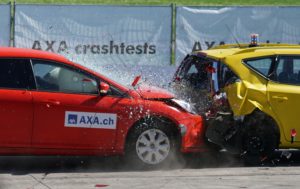In 2020, there were more than 5 million motor vehicle collisions in the United States. Distracted driving and speeding were both cited as major causes of those wrecks, and they are also among the common causes of rollover accidents.
The Mechanics of a Rollover Crash
A rollover accident occurs when a vehicle becomes unstable. Essentially, its center of gravity has changed so that it is more likely to move sideways as opposed to forward. Taking a corner too fast, driving on an icy road and swerving to avoid another vehicle are all methods by which you can change your car’s center of gravity enough to cause a rollover to occur.
How Speeding Can Contribute to a Rollover
The faster you travel, the harder it typically is to remain in control of your vehicle. This is generally true even when driving during periods of clear weather and dry roads. When driving at 60 miles per hour, it can take up to 290 feet to come to a complete stop, which is almost the length of a football field. It is also roughly 40% farther than the typical stopping distance when traveling at 50 miles per hour.
You may need even more room to come to a stop if you drive an SUV, have a heavy load or are traveling on icy or otherwise slippery roads. In addition, larger vehicles or those with heavy loads may have a higher center of gravity, which can make them more prone to rolling over even if you are traveling at a speed appropriate for road conditions.
How Distracted Driving Can Cause a Rollover
Distracted driving may increase your risk of a rollover crash because you typically won’t react to changing road conditions until it’s too late to do so safely. Instead, you will likely need to hit the brakes hard, which can destabilize your vehicle and increase your risk of rolling over.
Depending on the situation you find yourself in, there may not be enough time to avoid a collision even if you could hit the brakes fast enough. Therefore, your only option may be to swerve out of the way of an approaching vehicle or object at a high rate of speed. The high speeds combined with the sudden change of direction can easily create conditions conducive to your car, truck or SUV rolling over.
You may have been forced to slam your brakes or make a fast change of direction because of another person’s careless actions on the road. In such a scenario, consider contacting an Allentown personal injury attorney. Doing so may help you learn about the types of compensation you may be entitled to or how to prove that the defendant was negligent in your case.
Hitting a Curb or Guardrail Might Cause a Rollover
Hitting a curb or guardrail can also cause a rollover as it can partially lift your car off of the road. At that point, your tires have no more contact with the surface of that road and will lose traction. There is also a chance that anything on the side of the car that was lifted in the air will be thrown to the other side of the car’s interior, which will cause that side to become heavier than the other. Ultimately, this will cause the car to tip over and fall.
A rollover is most likely to occur if a vehicle strikes a curb, guardrail or pothole from the side as opposed to making a direct hit. In such a scenario, your car is likely to either stop after making contact with the object or continue through it until its forward momentum is stopped.
If you have been involved in a rollover accident that was caused by the negligence of another party, you are encouraged to contact our Allentown personal injury attorneys at Metzger & Kleiner. You can do so by calling 215-567-6616 or sending a fax to 215-561-6326. Finally, feel free to get in touch with our firm online.




Speak Your Mind